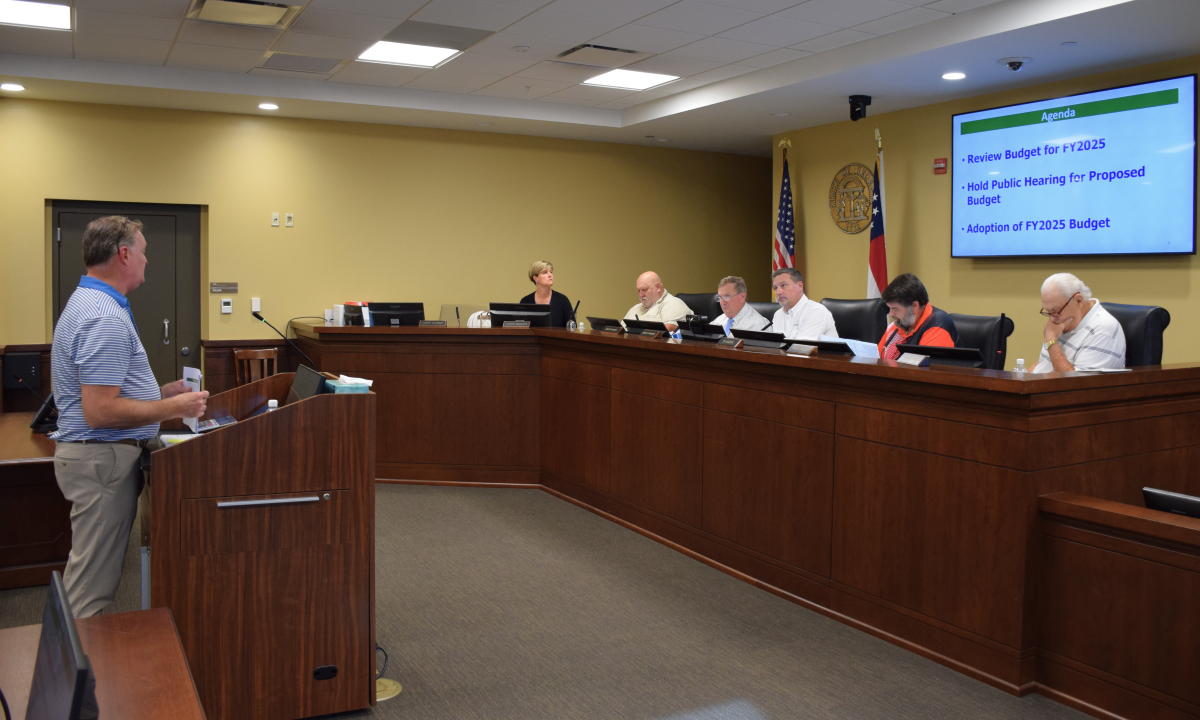
Governor Brian Kemp has reappointed District 10 State Representative Terry Rogers to the Georgia Film, Music, and Digital Entertainment Commission. Rogers was among eighteen members the governor swore-in to the commission on November 13.
The commission serves as an advisory committee to the governor on matters relating to the state’s entertainment industry. Members come from a variety of professional backgrounds including film, music, real estate, law, and politics.
Rogers is one of Gov. Kemp’s House floor leaders. He serves as vice-chairman of the Georgia House Economic Development and Tourism Committee and State Planning and Community Affairs Committee. He also serves on the House Working Group on Creative Arts & Entertainment.
Rogers, who lives in Clarkesville, was first appointed to the state film commission by former Gov. Nathan Deal.
“I was extremely happy to be reappointed,” he tells Now Habersham. “I have worked closely with the film industry ever since I first joined the legislature.”
Rep. Rogers says Gov. Kemp has some “really good ideas” about how the entertainment industry can expand small businesses in Georgia. “I’m looking forward to being part of that expansion.”
Hollywood of the South
Georgia has been dubbed the Hollywood of the South. In 2016, it overtook California as the leading location for feature film production in the United States. The peach state was able to do that, in large part, by offering generous tax incentives.

Production companies can get a 20% base transferable tax credit if they spend $500,000 or more on production and post-production in Georgia within a fiscal year. They can also receive an additional 10% tax credit if they display the state’s promotional logo in their projects.
“There’s a lot of talk right now about the possibility of tax credits for the music industry to see if we can’t keep more of our musicians in Georgia…”
The television and film industry had a $9.5 billion economic impact on Georgia during FY 2018, the governor’s office said. Of that, $2.7 billion was in direct spending. In exchange for that spending, the state doled out $801 million in tax credits to production companies, according to the Georgia Performance Measures Report.
Some outside observers dispute the size of the film industry’s economic impact on Georgia. Economics professors such as Dr. J.C. Bradbury of Kennesaw State University put it closer to $3 billion annually. They also contend the 92,000 jobs the industry claims to support in the state actually translate into far fewer full-time jobs.
Still, there’s no denying there’s an entertainment industry boom in Georgia.
“I think that Georgia is a wide open state [for the entertainment industry],” Rogers says. “There’s a lot of talk right now about the possibility of tax credits for the music industry to see if we can’t keep more of our musicians in Georgia instead of watching them leave to go to Tennessee and other states.”
The video gaming industry is another entertainment sector state officials are looking to possibly expand. They’re exploring ways to create more jobs for creative arts graduates such as those from the Savannah College of Art and Design (SCAD).
Heatbeat law controversy
While lawmakers work to attract new entertainment production investments to Georgia, the state is at risk of losing current investors.
Some of the biggest networks and names in film and television are threatening to leave the state over Georgia’s ‘heartbeat’ law. Gov. Kemp signed the strict abortion bill into law in May after the Republican-led legislature passed it.
“I’d like to thank Mr. Perry for his decision and I hope that other people in the industry who might have concerns would follow his lead.”
The American Civil Liberties Union of Georgia claims the law is unconstitutional and sued. A federal judge blocked the law from taking effect while it’s being challenged in the courts.

Netflix, Disney, NBCUniversal, Warner Media, Viacom, AMC Networks, Showtime and its parent company CBS are among the studios threatening to leave if the law goes into effect. A growing number of actors and film producers have also pledged not to work in Georgia if the new law takes effect.
Rep. Rogers and other lawmakers who voted for the ‘heartbeat’ bill are steadfast in their defense of it. The case could reach the Supreme Court. Despite the controversy, Rogers remains optimistic about the future of the state’s film and entertainment industry.
“People have a right to come and go as they please. I would hope that, before a decision is made [about leaving], they would consider the impact their actions would have on those who have supported them through their years of filming here,” he says.
Rogers points to the newly opened Tyler Perry Studios in Atlanta as an example.
“I think Tyler Perry made a great point when he said he personally disagreed with the bill but he has an investment here and a responsibility to the people who work for him. He’s a Georgian and he’ll keep his operation here in Georgia. I’d like to thank Mr. Perry for his decision and I hope that other people in the industry who might have concerns would follow his lead.”







